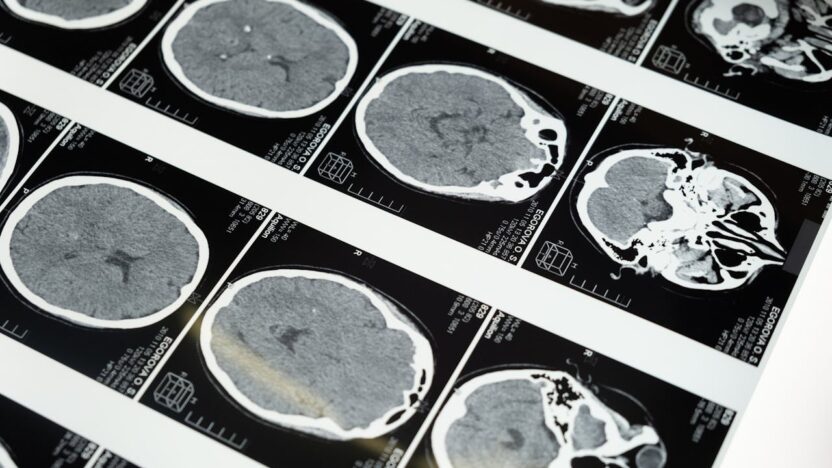Meditation, an ancient practice rooted in traditions such as Buddhism, Hinduism, and Taoism, has become a modern phenomenon. No longer confined to spiritual or religious contexts, meditation is now embraced by individuals from all walks of life, from busy professionals seeking stress relief to students improving their focus. Its profound effects on mental and physical well-being are supported by scientific research that continues to unveil its transformative power on the brain.
The Science Behind Meditation
Meditation is more than just sitting still and focusing on your breath; it’s a process of training the mind. This deliberate act of paying attention influences how our brain processes information. But what exactly happens during meditation?
Neurochemical Changes
Studies show that meditation increases the production of neurotransmitters such as dopamine and serotonin, which are associated with feelings of happiness, relaxation, and well-being. Simultaneously, levels of cortisol, the stress hormone, decrease during meditation, leading to a calmer state of mind.
Additionally, meditation stimulates the release of gamma-aminobutyric acid (GABA), a neurotransmitter responsible for calming the nervous system. This is why many individuals report feeling deeply relaxed and grounded after a meditation session.
Brain Wave Alterations
Meditation also changes brainwave patterns. EEG studies reveal that meditation increases alpha and theta brainwaves. Alpha waves are associated with a state of relaxation and mental clarity, while theta waves occur during deep relaxation and creativity. Advanced meditators even show increased gamma waves, which are linked to heightened states of awareness and cognitive function.
Structural and Functional Brain Changes
Meditation doesn’t just change brain activity in the short term; it also leads to long-lasting structural changes. These changes are visible through neuroimaging techniques such as MRI and fMRI.
Strengthening the Prefrontal Cortex
The prefrontal cortex, responsible for executive functions such as decision-making, planning, and impulse control, becomes thicker with regular meditation. This enhancement improves cognitive flexibility, allowing individuals to approach problems with clarity and creativity.
Rewiring Emotional Processing
Meditation strengthens the connection between the prefrontal cortex and the amygdala, which is the brain’s fear and stress center. As this connection grows stronger, individuals gain better control over emotional reactions, becoming less prone to stress and anxiety.
Enhancing Neuroplasticity
One of the most remarkable discoveries in neuroscience is the brain’s ability to reorganize itself, a concept known as neuroplasticity. Meditation fosters this process, creating new neural pathways that support positive habits and thought patterns.

The Ripple Effect of Meditation on Daily Life
The changes induced by meditation extend far beyond the brain, influencing every aspect of daily life.
Improved Focus and Productivity
Meditation trains the brain to sustain attention. Mindfulness meditation, for instance, has been shown to improve attention span and reduce mind-wandering. This is particularly beneficial in a world full of distractions, helping individuals stay present and productive in their tasks.
Better Emotional Intelligence
The enhanced activity in the temporoparietal junction, associated with empathy and compassion, translates into improved social interactions. Regular meditators often report feeling more connected to others and better equipped to navigate conflicts and relationships.
Stress Reduction
The reduction of cortisol and improved regulation of the amygdala explain why meditation is such a powerful tool for managing stress. Meditation techniques like mindfulness-based stress reduction (MBSR) are even used in clinical settings to help patients cope with chronic pain and anxiety disorders.
Different Types of Meditation and Their Benefits
Meditation is not a one-size-fits-all practice. There are various forms, each with unique benefits.
Mindfulness Meditation
This popular form of meditation involves focusing on the present moment without judgment. It is often used to reduce anxiety, increase self-awareness, and improve emotional regulation.
Loving-Kindness Meditation (Metta)
This practice centers on cultivating feelings of compassion and goodwill toward oneself and others. Studies show it can reduce negative emotions and increase feelings of social connection.
Transcendental Meditation
In this technique, practitioners silently repeat a mantra to transcend ordinary thought processes. It has been linked to reduced blood pressure, improved focus, and greater relaxation.
Body Scan Meditation
This involves paying attention to different parts of the body in a systematic way. It is especially effective for relieving tension and enhancing mind-body awareness.
Zen Meditation (Zazen)
A traditional form of meditation practiced in Zen Buddhism, Zazen emphasizes seated meditation and mindful breathing. It enhances focus, patience, and inner peace.
Practical Tips for Beginners
Meditation can seem daunting at first, but starting small and building a consistent practice is key. Here are some tips:
- Start with Short Sessions: Begin with just 5–10 minutes a day to build the habit without feeling overwhelmed.
- Create a Dedicated Space: Find a quiet, comfortable spot where you won’t be disturbed.
- Use Guided Meditations: Apps like Headspace or Calm offer guided sessions that are perfect for beginners.
- Be Patient with Yourself: It’s normal for your mind to wander. Gently bring your focus back to your breath or mantra.
The Long-Term Benefits of Meditation
Meditation is like exercise for the brain: the more you practice, the stronger and more resilient it becomes. Over time, regular meditation can lead to:
- Reduced risk of mental health disorders: Such as depression and anxiety.
- Improved physical health: Lower blood pressure, improved immune function, and reduced inflammation.
- Enhanced self-awareness: Making it easier to recognize and change negative thought patterns.
- A deeper sense of purpose: Many practitioners report feeling more connected to themselves and the world around them.




